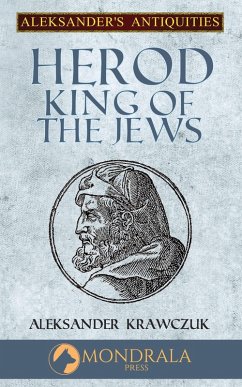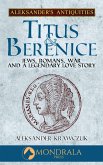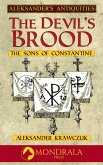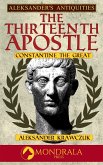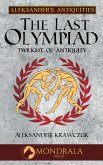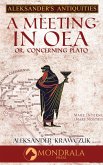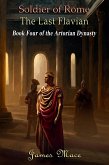There have been scores of books on the subject of Herod. Is there any reason to have another one?
Oh, yes! And how!
First of all, no other biography of Herod situates him within the Graeco-Roman milieu like this book does. For whatever reason, all books on Herod are somehow near-sighted. Somewhere on the periphery of the action appear large-looming figures--Pompey, Caesar, Crassus, Antony, Cleopatra, the Parthians. Their motivations are unclear; why they should care for or interfere in Palestine and Judea is uncertain; how and why Herod has to maneuver is a mystery. This book gives us the global perspective we need to understand the man and his works. It also explains how and why what happened in provincial little Palestine impacted the grand politics of Rome.
Second, in beautiful and vivid language, this book evokes the harsh geographic and economic realities of Palestine. Why was Jericho important? Why did the separate national identity of Samaria matter? Who were the Nabateans? What was the significance of the port of Caesarea? What was it like to be there then?
Finally, there is the old Krawczuk touch: an easygoing and yet profound reflection on the biography of a politician and his posthumous reputation; and the fate of a small nation buffeted by the ambitions of great empires and the seemingly irresistible force of globalization.
Not an Italian, yet is Aleksander a master of the sprezzatura--the artful "off-the-cuffness" hiding surprising depths within a seemingly throwaway comment. As Rameau would have put it, hiding art with art.
And then... then there is the prose. Just listen:
"THE SHADOWS OF TWILIGHT
PROLOGUE TO THE TRAGEDY
SPEAKS ECCLESIASTES
"I made me great works; I builded me houses; I planted me vineyards; I made me gardens and orchards, and I planted trees in them of all kind of fruits; I made me pools of water, to water therewith the wood that bringeth forth trees: I got me servants and maidens, and had servants born in my house; I had great possessions of great and small cattle above all that were in Jerusalem before me. I gathered me also silver and gold, and the peculiar treasure of kings and of the provinces. I gat me men singers and women singers, and the delights of the sons of men, as musical instruments, and that of all sorts. So I was great, and increased more than all that were before me in Jerusalem: also my wisdom remained with me. And whatsoever mine eyes desired I kept not from them, I withheld not my heart from any joy; for my heart rejoiced in all my labor: and this was my portion of all my labor.
Then I looked on all the works that my hands had wrought, and on the labor that I had labored to do: and, behold, all was vanity and vexation of spirit, and there was no profit under the sun."[1]
Tradition ascribes these words to King Solomon. In reality, this book of sadness was composed no more than two centuries before Herod. Its Hebrew title is Kohelet, meaning "The Preacher." It quickly gained popularity and is still one of the best-known books of the Bible, perhaps because in every person's life, there comes a moment when she or he will agree with the words of The Preacher: "Oh, vanity of vanities! And all is vanity!"
Herod probably heard this chapter often: it seemed written for him. Who knows if, upon hearing it, the king did not object: Why should I consider my deeds vain and futile? Here they are! They will last forever!
And yet, his time was coming to an end."
This book is a delight. Pick up your copy today.
Dieser Download kann aus rechtlichen Gründen nur mit Rechnungsadresse in A, B, CY, CZ, D, DK, EW, E, FIN, F, GR, H, IRL, I, LT, L, LR, M, NL, PL, P, R, S, SLO, SK ausgeliefert werden.

